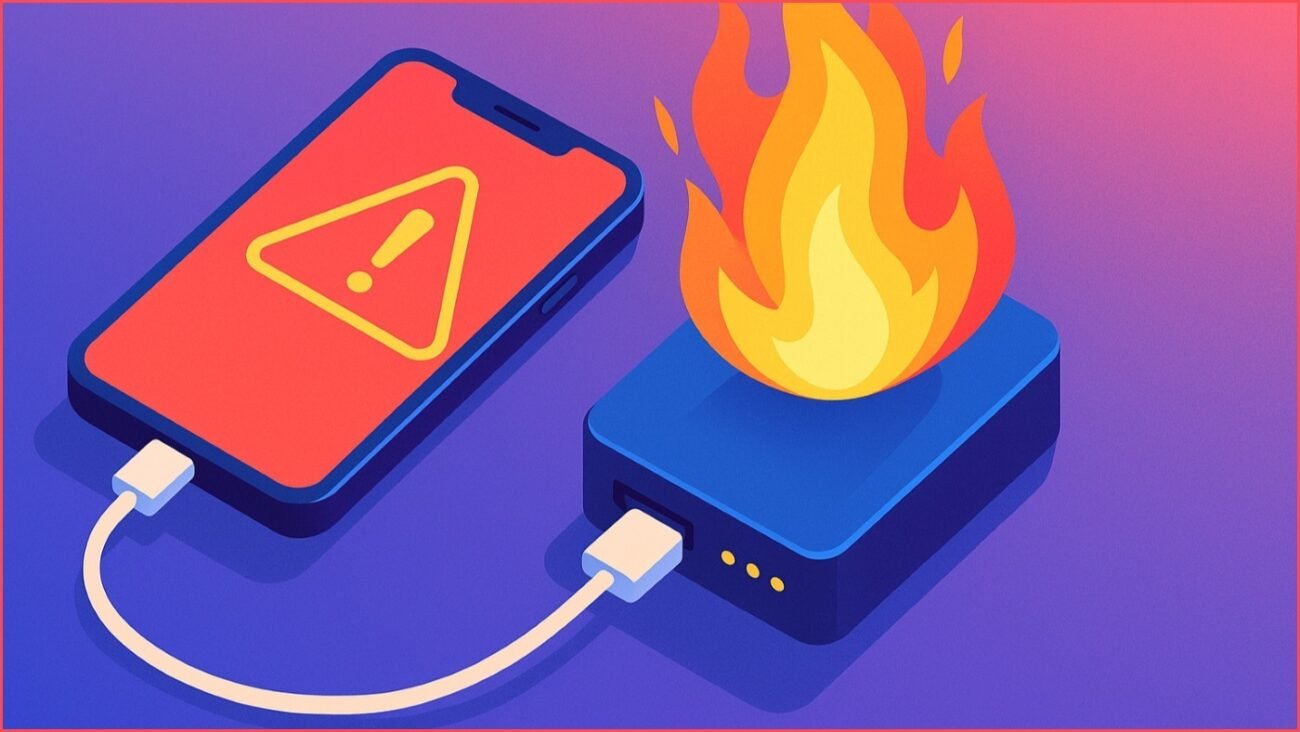Power bank recalls ‘on the rise’ over fires | Information Age
Portable chargers from prominent brands ‘have the potential to cause serious burns’, ACCC says. Image: Tom Williams / Google Gemini AI
Australia’s consumer product regulator says recalls of portable power banks are “on the rise”, with nine devices recalled over fire safety concerns in the past 16 months alone.
The Australian Competition and Consumer Commission (ACCC) urged consumers on Tuesday to “be alert” to the growing list of recalled devices — including some from prominent brands which “have the potential to cause serious burns” and damage.
Since 2020, 17 portable chargers which use lithium batteries to charge phones and other electronics have been recalled, after several users suffered serious burns or had their property damaged when the batteries overheated and caught fire.
ACCC said it was concerned that around 34,000 recalled chargers were still potentially being used by Australian consumers.
The regulator’s deputy chair, Catriona Lowe, said suppliers of recalled products were offering full refunds or free replacements of defective devices, and encouraged consumers who owned them to stop using them and come forward.
“Most incidents have occurred when the power bank is charging a phone or other device, which makes it more likely that they will be close to the user when they fail, increasing the likelihood of injuries,” Lowe said.
Regulator ‘closely’ monitoring popular brands
ACCC released a list of recalled power banks it said it was “monitoring closely”, including models from popular brands such as Anker, Belkin, Cygnett, Quad Lock, and SnapWireless — all of which were contacted for comment.
Jason Carrington, CEO of Cygnett — which recalled its MagMove 5K power bank in March 2024 after several users were injured in fires — told Information Age the company had “used a number of communication channels and methods to reach as many consumers who have the affected power bank as possible”.
“Cygnett acted promptly and purposefully when first made aware of the safety issue in order to remove the product from sale and recover faulty units sold as soon as possible,” Carrington said in a statement.
“Our testing regime is rigorous and thorough with our products undergoing hundreds of individual tests to ensure compliance with strict Australian and international standards prior to release to market.”
Quad Lock also said it its battery-powered products underwent “rigorous internal and third-party testing in line with international safety standards” prior to release.
“We are committed to continuous improvement, and following the recall we have introduced additional safeguards and testing protocols to further strengthen product safety,” the company said.
Portable charges from popular brands such as Anker, SnapWireless, and Cygnett have been recalled in recent years. Images: Supplied
Brand names ‘not necessarily an indicator of quality’
Andy Kelly, consumer advocacy group Choice’s deputy director of campaigns, argued a well-known brand name was “not necessarily an indicator of quality”.
He said consumers also needed to “be wary of purchasing cheap, risky products online” as cheap electronics continued to flood the market through online marketplaces.
“… Incidents involving lithium-ion batteries are increasing, including overheating, fires, and a number of injuries and deaths.
“Australia’s product safety regime is reactive and unfortunately, it can take a serious incident before a product is recalled.”
Kelly said Choice supported “federal, state, and territory governments making additional obligations on businesses that manufacture and supply lithium-ion battery products — like wireless power banks — to test, label, and ensure compliance of their products”.
Consumers urged to use portable chargers safely
Lithium batteries can be highly flammable if used, stored, or disposed of incorrectly, with emergency services in New South Wales recently reporting “an alarming spike” in lithium-ion battery fires typically associated with e-bike and e-scooter batteries.
ACCC said that just like those larger lithium-ion batteries, power banks for portable electronics should be used correctly, checked for damage, and not left plugged in on “flammable materials such as beds, sofas or carpet”.
“It’s important that people use the correct charger to charge their power bank and check that it is in good condition,” Lowe said.
“… Setting timers as a reminder to unplug devices may help monitor device charging times, as it’s important to disconnect products from chargers when they are fully charged.”
Several airlines have also recently begun restricting passengers from using portable power banks on their flights, including charging their devices or charging the portable chargers through onboard USB ports.
Many also forbid power banks from being stored in checked-in luggage, due to fire risks.


